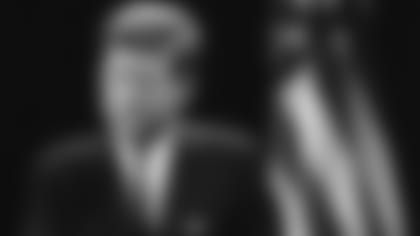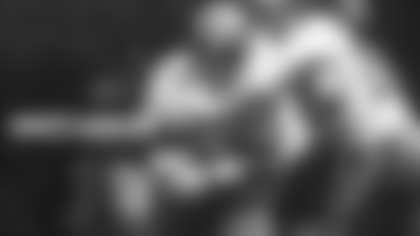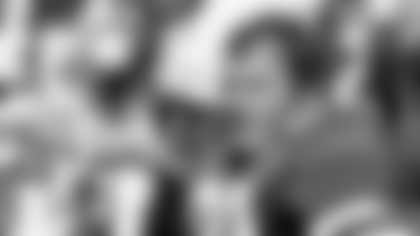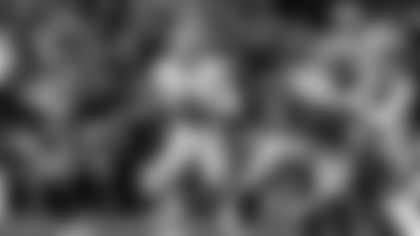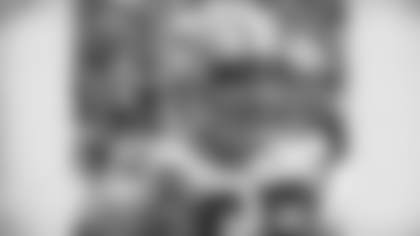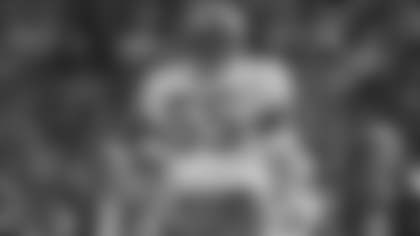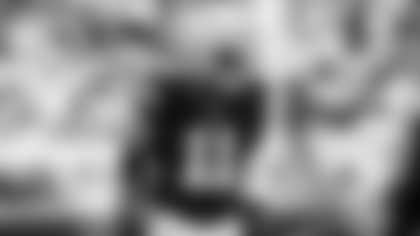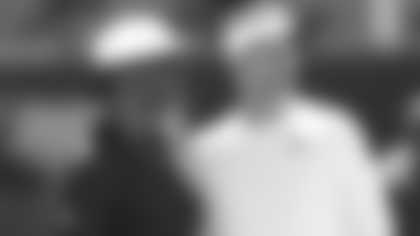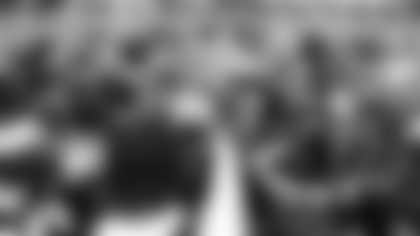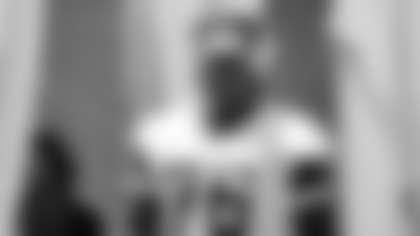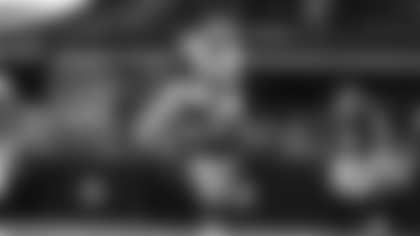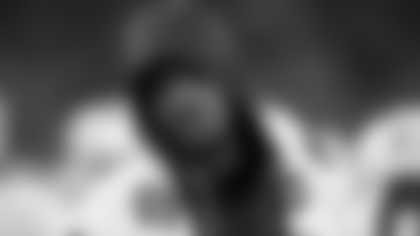IRVING, Texas – Jerry Jones was sitting with his wife Gene in their Fayetteville, Ark., apartment right across from Razorback Stadium, a junior offensive lineman at the University of Arkansas when …
Gil Brandt was sitting in a draft meeting in the Cowboys offices off Central Expressway, the team's 30-year-old scouting director that memorable day when …
Lee Roy Jordan was at the Cowboys practice facility right off Central Expressway, the rookie linebacker nursing a punctured kidney when …
Roger Staubach was a 21-year-old junior from Cincinnati, Ohio, at the Naval Academy, moving between classes and heading to Bancroft Hall when …
Don Meredith, the 25-year-old quarterback of the Cowboys, was on the practice field, getting ready to play the Cleveland Browns in two days when …
Danny White was but 11 years old, sitting in Mrs. Fugat's fifth-grade class when …
Me, I was two weeks shy of my 11th birthday, and still can picture myself sitting in Mrs. Hughes' fifth-grade class at Saukview Elementary when …
Pettis Norman, a second-year tight end for the Cowboys, all of 24 years old, was also on the practice field that day, maybe a 10-minute drive from downtown Dallas, when …
"… the equipment manager Jack Estes ran out of the door, 'They shot the president.' We thought he was kidding. 'They shot the president.'"
Memories crisp and clear as the morning dew from 50 years ago this coming Friday, Nov. 22, 1963, memories never dulled one bit for those of us who were alive and old enough to remember that day, 12:30 in the afternoon, Central Standard Time, when the world was told President John Fitzgerald Kennedy had been shot in downtown Dallas, Texas.
One of life's indelible freeze frames never to be forgotten, the world indeed coming to a standstill. Just ask anyone old enough to remember. They will tell you. They will have a story, just as mine, me but an innocent 10-year-old at the time, the most traumatic experience to that point in life must having been the Chicago White Sox losing the 1959 World Series to the Los Angeles Dodgers, 4 games to 2. Or maybe it was in 1962, during the Cuban Missile Crisis, walking to school from our suburban Chicago home and inspecting every plane flying overhead along the way, trying to make sure it was one of ours. [embedded_ad]
But this? Parents and teachers, those towers of strength for us youngins, suddenly seemed vulnerable for the first time. They were crying real tears, this young president who was crossing all racial, ethnic and religious lines, married to that very pretty lady, had been shot, for real.
Us fifth graders, since we were the oldest, were ushered into what was then called the audio-visual room. There was a TV propped up on the wall, mostly used for some closed-circuit Spanish lessons. But this would be a lesson in history no text book held yet:
Walter Cronkite, the keeper of the truth, keeping us informed, maybe even our young, naive hopes up that President Kennedy was only wounded, until this came starkly in black and white:
Taking his thick, black wide-rimmed glasses off as he glanced to his side, briefly reading something, then slowing turning back to the camera putting them on and uttering to this day those infamous but chilling words in staccato delivery:
"From Dallas, Texas … the flash apparently official, President Kennedy died at 1 p.m. Central Standard Time … 2 o'clock Eastern Standard Time … some 38 minutes ago.
This was the first, but definitely not the last we screamed NO! in the 1960s.
Even this most trusted newsman needed what seemed like forever if only five seconds to compose himself, emotionally choked up, the silence speaking 1,000 words. The rest of us, well, we weren't on national television, raw emotions spilling out around the world.
Thus began a stunning chain reaction that weekend, and how eerie since Nov. 22, 1963 was, just as Nov. 22, 2013 is – 50 years later – on a Friday: A Dallas policeman, J.D. Tippett, is found on the streets of Oak Cliff, shot and killed; a man named Lee Harvey Oswald is arrested hours later in the Texas Theater, charged as the assassin; and Jack Ruby, walking into the basement of the Dallas Police Station on Sunday, Nov. 24, 1963, shooting Oswald dead as he was being transferred from the jail in front of hordes of policemen, newsmen and a shocked national TV audience.
The same day the Dallas Cowboys were to play the Cleveland Browns at Cleveland Municipal Stadium, and now 50 years later the same day the Dallas Cowboys will play the New York Giants at MetLife Stadium following this weekend's bye.
"The question was, are we going to go play?" Norman remembers during a lengthy interview for our JFK: Cowboys Legends Reflect, a 30-minute TV show produced by the Dallas Cowboys Television department currently airing multiple times on Fox Sports Southwest for the next several weeks. "We got notice from [Tom] Landry we were going to play the game, in other words, life does not stop and that we should not make it stop because of this."
Should not only the seven NFL games be played, but also all those college games across the country scheduled for the very next day, some opponents already either on their way or already having arrived at their away-game destinations.
"I know that [NFL commissioner Pete] Rozelle was in contact with Kennedy's people and apparently Bobby Kennedy told him President Kennedy would want them to play on that particular day," Brandt says.
Evidently the same message was relayed from Pierre Salinger, President Kennedy's press secretary, a former college classmate of Rozelle's, saying because of the president's love of sport he would want the games to play on – definitely not what Cowboys owner Clint Murchison Jr., nor any of the other NFL team owners, wanted to hear. Especially not Cleveland owner Art Modell, whose Browns weren't simply scheduled to play the 3-7 Cowboys on Sunday, but they were the Dallas Cowboys, from the city where the President of the United States was killed.
Yes, Dallas suddenly carried this ugly stigma, as if anyone from here was part of the assassination, a black-eye this city carried throughout the turbulent 1960s, and believe them when the Cowboys tell you not even they were immune from guilt by residence. This would not be your normal road trip for the Dallas Cowboys.
The bellhops at the hotel turned their backs on the buses when they arrived, basically saying, carry your own darn bags, youze guys from that city that shot the president. Armed guards were stationed in the stands and on the roofs of Cleveland Municipal Stadium. Modell's instructions to the P.A. announcer were to only make references to "the Cowboys," but never "the Dallas Cowboys."
"I remember them booing us, yelled all sorts of crap at us from the stands," says Jordan of the rude treatment the team would receive at road games.
And on that particular weekend, Brandt remembers, "One of the things they told us on Saturday night, 'Don't go any place and say you're with the Cowboys – or from Dallas."
Day of the game, veteran quarterback Eddie LeBaron reportedly told his teams to put their helmets on "and keep them on."
That Sunday, Nov. 24, 1963, things only grew worse for these unwelcomed visitors, another most-vivid memory of the now 80-year-old Brandt.
"As you used to have to walk down in the dugout, then upstairs, there was a big, fat security officer who sat out there on a tin chair and all of a sudden, Tom had gathered the team up and was just ready to say here is the first play we're going to run, and the officer opens the door and says, 'Coach, coach you know the guy who shot the president? They just killed him dead in the jailhouse.'"
Exactly just how the Cowboys found out Ruby had killed Oswald, only adding to this wild, wild West image Dallas always had but now would have for decades more.
Landry, we're told, thanked the man and stoically went about his business preparing his players for this game, though Brandt recalls sitting in the back of the locker room "with Don Perkins, and Perkins said, 'I knew we shouldn't be playing today … I knew we shouldn't be playing today.'"
Center Mike Connelly, one of the original Cowboys from the inaugural 1960 teams, distinctly remembers this:
"The first thing that sticks out in my mind was I remember after the assassination during the season they would introduce the team by the starting team, defensive team, introduce them one by one, or if it was the offensive team, they would introduce the offensive team. I was the center, so for the offensive team you're always the first guy out on the field.
"So we thought, golly, I hope they don't introduce the offensive team first because I'd have to run out there all by myself. And everyone was saying (cups hands over his mouth) 'Nice knowing you Mike. That guy's going to zing you, bam.' And you started to think about that, and it was like, well …"
Of course, nothing drastic did happen at the stadium that Sunday, only an overabundance of rudeness on display from a crowd of 55,096 on the chilly late-November afternoon just off Lake Erie.
"We were getting ready to run onto the field and the fans booed us and called us names, as if we killed the president," Norman says. "I remember that distinctly –* distinctly*. I mean, it was incredible."
The game was not, the Browns beating the Cowboys, 27-17. Meredith, openly professing not wanting to play in the game, was awful, completing just 13 of 30 passes for 90 yards and getting intercepted four times, the final two in the fourth quarter leading to Cleveland touchdowns. Cleveland future NFL leading rusher and Hall of Fame running back Jim Brown only gained 51 yards in a lackluster performance.
"I remember we were in no frame of mind to play a ballgame," Meredith told Michael Granberry, now of the Dallas Morning News, in a 1982 interview from the retired quarterback's residence in Beverly Hills, Calif.
Then Dallas Morning News columnist Bud Shrake's lead for Monday's paper after the game read: This was a game that nobody was interested in playing, coaching, watching or writing about, and later in the column wrote, Sunday's game seemed silly and frivolous and was very poorly played, and it was no indication one way or the other of the ability of the two teams.
"But we played the game," Norman says. "If you ask me anything that went on in that game I can't tell you because it was just almost a blackout. We couldn't think of the plays – I'm sure we ran the plays correctly or best we could. But as far as this incredible tragic incident that had taken place right in the city, the place I had just driven through going over to practice in North Dallas. I had just driven through that area, OK, so to some degree there was fear coming out of this whole thing. So that was the atmosphere that was here."
A day, a weekend, a time that lives in inglorious infamy, all sticking like excess super glue to our memory banks, still, now 50 years later to the day this coming Friday, Nov. 22, 1963, when suddenly Dallas, Texas, became known as "The City of Hate," while one New York newspaper began referring to that football team in Dallas as "The Assassins," if you can believe that.
A far climb it indeed was to America's Team more than a decade later.
To this day, future Cowboys fullback Walt Garrison, born and raised in then the farming community of Lewisville, Texas, that now is a sprawling suburb, remembers being in a pool hall in Stillwater, Okla., but a sophomore at Oklahoma State University, when …
"It made me feel like I had something to do with it because I was from Texas, and I was from Lewisville, Texas, which is just North of Dallas," says Garrison, who would become a fifth-round draft choice of the Cowboys in 1966. "And I think it was maybe the worst thing that ever happened to the state of Texas, that a president actually got killed in the state."
Yes, swiftly coming up on 50 years ago Friday, Nov. 22, 1963, and just wondering if church bells will ring at a half-past noon, as if any of us will need the reminder.



